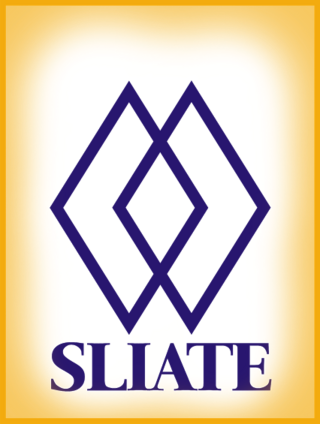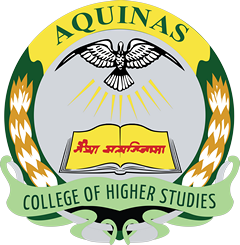
A college is an educational institution or a constituent part of one. A college may be a degree-awarding tertiary educational institution, a part of a collegiate or federal university, an institution offering vocational education, a further education institution, or a secondary school.
Secondary education or post-primary education covers two phases on the International Standard Classification of Education scale. Level 2 or lower secondary education is considered the second and final phase of basic education, and level 3 upper secondary education or senior secondary education is the stage before tertiary education. Every country aims to provide basic education, but the systems and terminology remain unique to them. Secondary education typically takes place after six years of primary education and is followed by higher education, vocational education or employment. In most countries secondary education is compulsory, at least until the age of 16. Children typically enter the lower secondary phase around age 12. Compulsory education sometimes extends to age 20.
Technical and further education or simply TAFE is the common name in English-speaking countries in Oceania for vocational education, as a subset of tertiary education. TAFE institutions provide a wide range of predominantly vocational courses.

Vocational education is education that prepares people for a skilled craft as an artisan, trade as a tradesperson, or work as a technician. Vocational education can also be seen as that type of education given to an individual to prepare that individual to be gainfully employed or self employed with requisite skill. Vocational education is known by a variety of names, depending on the country concerned, including career and technical education, or acronyms such as TVET and TAFE.
Further education in the United Kingdom and Ireland is additional education to that received at secondary school that is distinct from the higher education (HE) offered in universities and other academic institutions. It may be at any level in compulsory secondary education, from entry to higher level qualifications such as awards, certificates, diplomas and other vocational, competency-based qualifications through awarding organisations including City and Guilds, Edexcel (BTEC) and OCR. FE colleges may also offer HE qualifications such as HNC, HND, foundation degree or PGCE. The colleges are also a large service provider for apprenticeships where most of the training takes place at the apprentices' workplace, supplemented with day release into college.

Dickson College is a public two-year secondary college located in the Canberra suburb of Dickson, Australian Capital Territory. It was established in 1976 on the former Dickson High School campus when it closed.

Education in Mauritius is managed by the Ministry of Education & Human Resources, which controls the development and administration of state schools funded by government, but also has an advisory and supervisory role in respect of private schools. The Tertiary education is maintained by the Ministry of Tertiary Education, Science, Research and Technology. The government of Mauritius provides free education to its citizens from pre-primary to tertiary levels. Since July 2005, the government also introduced free transport for all students. Schooling is compulsory up to the age of 16. Mauritian students consistently rank top in the world each year for the Cambridge International O Level, International A and AS level examinations. Among sub-Saharan African countries, Mauritius has one of the highest literacy rates. The adult literacy rate was at 91.9% in 2022. According to the 2022 census, the proportion of people with higher education has increased to 8.8%. Mauritius was ranked 57th in the Global Innovation Index in 2023, 1st in Africa.

Education in Sri Lanka has a long history that dates back two millennia. While the Constitution of Sri Lanka does not provide free education as a fundamental right, the constitution mentions that 'the complete eradication of illiteracy and the assurance to all persons of the right to universal and equal access to education at all levels" in its section on directive principles of state policy at (27. Sri Lanka's population had an adult literacy rate of 96.3% in 2015, which is above average by world and regional standards. Computer literacy in 2017 28.3% and phone users in 2017 105%, website users 32% in 2017. Education plays a major part in the life and culture of the country, which dates back to 543 BC. Sri Lanka's modern educational system modeled after Christian missionary system was brought about by its integration into the British Empire in the 19th century. Education currently falls under the control of both the Central Government and the Provincial Councils, with some responsibilities lying with the Central Government and the Provincial Council having autonomy for others. Education institutions with a tradition dating back to 5 BC are largely ignored by the state.

Before the arrival of European settlers, who introduced a formal education system addressed to the elites, education in Ghana was mainly informal and based on apprenticeship. Economic activities in pre-colonial Ghana were based on farm produce shared within households and members of each household specialized in providing necessities such as cooking utilities, shelter, clothing, and furniture, and trade with other households was therefore practiced on a very small scale. As such there was no need for employment outside the household that would have otherwise called for disciplines, values, and skills through a formal education system. After colonization, Ghana's economy became a hybrid of subsistence and formal economy.
Education in the Philippines is compulsory at the basic education level, composed of kindergarten, elementary school, junior high school, and senior high school. The educational system is managed by three government agencies by level of education: the Department of Education (DepEd) for basic education; the Commission on Higher Education (CHED) for higher education; and the Technical Education and Skills Development Authority (TESDA) for technical and vocational education. Public education is funded by the national government.

Education in Namibia is compulsory for 10 years between the ages of 6 and 16. There are approximately 1900 schools in Namibia of which 100 are privately owned. Namibian subjects' syllabi are based on the International General Certificate of Secondary Education which is part of Cambridge International. The Constitution directs the government to provide free primary education; however, families must pay fees for uniforms, stationery, books, hostels, and school improvements. Among sub-Saharan African countries, Namibia has one of the highest literacy rates.

Sherwin Ting Gatchalian, known as Win Gatchalian, is a Filipino politician and businessman serving as a Senator since 2016. A member of the Nationalist People's Coalition (NPC), he previously served as the Representative of Valenzuela's 1st district from 2001 to 2004 and from 2013 to 2016. He was the Mayor of Valenzuela from 2004 to 2013.
Higher education in Sri Lanka is an optional final stage of formal learning following secondary education. Higher education, also referred to as tertiary education occurs most commonly universities or degree-granting institutions. These may be public universities, public and private degree-granting institutions which award their own degrees or degrees from foreign universities. High visibility issues include limited capacity of public universities to cater for the demand and opposition to private universities from certain segments.

The Sri Lanka Institute of Advanced Technological Education is a statutory body in Sri Lanka coming under the purview of the Higher Education Ministry and offering Higher National Diploma courses. At present, it manages and supervises eighteen provincial Advanced Technological Institutes throughout the island. The institute is traditionally known for its education in the accountancy and engineering. As per the recommendations of the Committee appointed by Prof. Wiswa Waranapala, Deputy Minister of Higher Education in 1994, the Sri Lanka Institute of Advanced Technical Education (SLIATE) was formed in 1995, under the Sri Lanka Institute of Advanced Technical Education Act No. 29 of 1995. In 2001, the name of the institution was amended as Sri Lanka Institute of Advanced Technological Education (SLIATE).
Dayantha Sepala Wijeyesekera is a Sri Lankan academic and civil engineer. He was the first vice chancellor of Open University of Sri Lanka in 1983. He later served as Chairman, Tertiary and Vocational Education Commission (TVEC) in the Ministry of Youth Affairs and Skills Development of Sri Lanka. He was also the vice chancellor of University of Moratuwa from 1999 to 2005.

The Ministry of Education, Vocational Training and Sports (MEFPD) is the department of the Government of Spain responsible for proposing and carrying out the government policy on education and vocational training, including all the teachings of the education system except university education, without prejudice to the competences of the National Sports Council in matters of sports education. Likewise, it is also the responsibility of this Department the promotion of cooperation actions and, in coordination with the Ministry of Foreign Affairs, the promotion of international relations in the field of non-university education.
The Ghana Education Service (GES) is a government agency under the Ministry of Education responsible for implementing government policies that ensure that Ghanaians of school-going age irrespective of their ethnicity, gender, disability, religious and political dispositions receive quality formal education. The Ghana Education Service is governed by a fifteen-member council called the GES council.

Te Pūkenga – New Zealand Institute of Skills and Technology is the largest vocational education provider in New Zealand. In February 2019, the Government announced that the country's sixteen Institutes of Technology and Polytechnics (ITPs) would merge to form the new organisation; the merger was effective on 1 April 2020. In addition to the polytechnics, Te Pūkenga also took over responsibility for industry training and apprenticeship training from nine industry training organisations (ITOs). Te Pūkenga's head office is located in Hamilton and with Peter Winder serving as acting chief executive.

Penelope Elsie Simmonds is a New Zealand politician, Member of Parliament and a Minister in the House of Representatives for the National Party. She previously served as the chief executive of the Southern Institute of Technology. Following the 2023 New Zealand general election, Simmonds assumed the disability issues, environmental, tertiary education and skills, and associate social development and employment portfolios in the Sixth National Government.

The Aquinas College of Higher Studies also known as Aquinas University College is a Sri Lankan nonprofit private Tertiary education institute that provides both academic degrees and vocational training.












